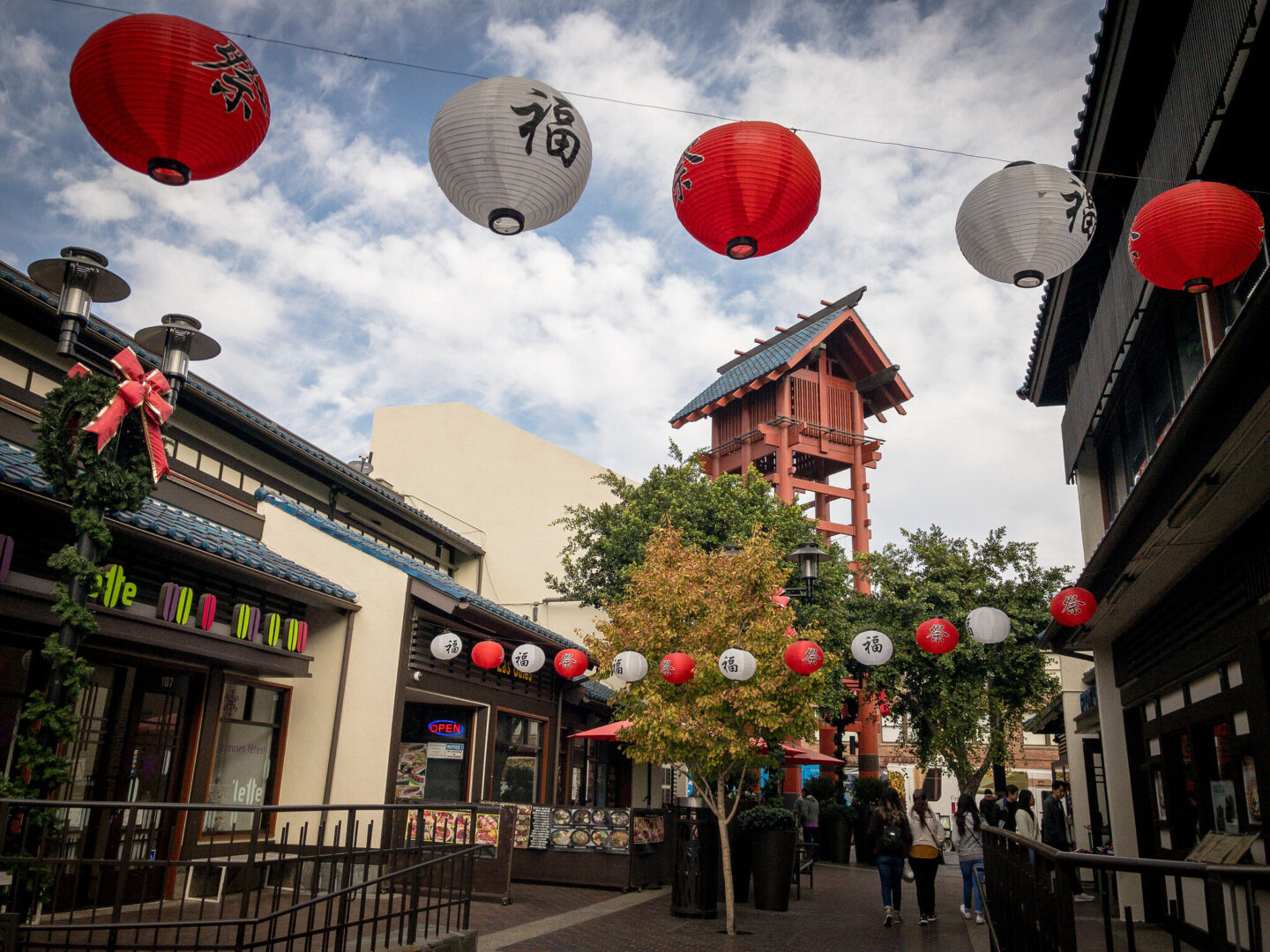 View Winners →
View Winners → 
The city of Los Angeles Thursday will close and fence off a Little Tokyo plaza that has become the site of a large homeless encampment during the COVID-19 pandemic — but the plan has drawn protests from some local homeless advocacy groups.
The office of City Councilman Kevin de León, who represents the plaza area, said that Toriumi Plaza, located at First and Judge John Aiso streets, is being closed for maintenance, electrical repairs, landscaping, permanent fencing and other ancillary work. A timeline for when the plaza will reopen was not immediately available.
Since Feb. 16, the Los Angeles Homeless Services Authority has conducted outreach and brought 55 people from the plaza into shelters, though an estimated 25 to 30 people still remained, de León’s office said Wednesday.
LAHSA also provided 185 people in the area with referrals for substance abuse programs, housing and shelter options, mental health services, survival resources and coronavirus-related services, according to de León’s office.
The people brought indoors have been placed in several facilities, including A Bridge Home temporary shelter, the Hilda L. Solis Care First Village interim housing, and permanent placements within the Project Roomkey program at the Cecil Hotel, which is now operated by the Skid Row Housing Trust, de León’s office said.
However, the plan to remove people living in the plaza has been protested by J-Town Action and Solidarity, a grassroots community organization in Little Tokyo that has been collaborating with We The Unhoused to provide hot meals, water and supplies to people living in the plaza every Saturday over the last year.
J-Town, along with We The Unhoused and Ktown for All, held a protest with dozens of people on Sunday and is planning another rally at 7 a.m. Thursday, ahead of the city’s closure of the plaza at 10 p.m.
J-Town is protesting the city’s removal of the unhoused residents, as well as the shelter options that it has offered — alleging that the Project Roomkey program, which provides hotel rooms to unhoused people, includes “prison-like conditions and restrictive policies.”
Some Project Roomkey residents, including a group that organized last year under the name Unhoused Tenants Against Carceral Housing, have alleged that they are subjected to debilitating curfews that restrict their employment options, as well as to supply confiscations, harassment from security, a lack of privacy and other rules as a condition of the placement.
J-Town demands that the city cancel its plans to close Toriumi Plaza and instead provide the people living there with permanent housing and wrap- around services. It also seeks to have the city use the approximately $1.76 billion it invests in the police each year for permanent housing and services for all of the city’s unhoused residents.
“Sending in lethally armed police to tear down tents and destroy people’s belongings does not make housing any more accessible, and the `housing’ he (de León) does offer is temporary and akin to prisons,” Gianna Furumoto, an organizer with J-Town Action and Solidarity, told City News Service on Tuesday.
“We know many residents at Toriumi Plaza who accepted Project Roomkey and are already back at the plaza — not by choice, but because they were kicked out of PRK to make room for newly swept people.”
De León’s office said that community members and nearby businesses had complained about the encampment’s presence in the plaza, and that there have been multiple overdoses, at least one sexual assault, drug deals, vandalism, assaults and fires at the location reported to the police department.
Candy Kisswani, who owns Mike’s Deli across the street from the plaza, told City News Service that business “has taken a big hit” since the encampment developed across the street and that she has been complaining to the councilman’s office for the last two years.
She said that she and her staff have experienced incidents with people breaking their windows, becoming violent, relieving themselves on the sidewalk in front of the deli, using drugs and leaving behind needles in front of the deli’s door.
“It has got to get cleaned up. It’s really not safe,” Kisswani said.
Dora Hanamure, who works at and is married to the owner of Mitsuru Sushi & Grill, told City News Service on Wednesday that they haven’t experienced many problems with the neighboring encampment, but that customers have complained about not feeling safe in Little Tokyo.
Furumoto said J-Town Action and Solidarity has communicated with nearby businesses about their concerns.
“Our position at JAS is if you don’t want to see these people doing drugs, the only thing is to provide permanent housing for them. People who are housed also do drugs, they just have the privilege of doing it in their own space. …
“What we need to provide is services to the unhoused community rather than bringing them more violence and displacement, which really just aggravates everything that these business owners are complaining about,” Furumoto said.









































































































